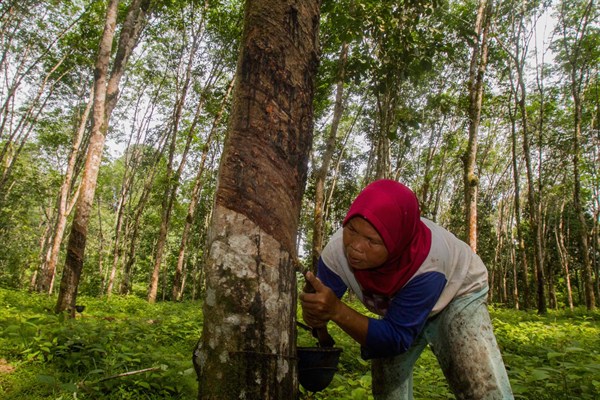Editor's note: This article is part of an ongoing WPR series on the impact of falling oil and commodities prices on resource-exporting countries.
A prolonged commodities slump has caused Indonesia’s economy to slow drastically. Last year, Indonesia saw its slowest growth rate since 2002; the currency lost 11 percent of its value; and trade levels were at their lowest since the Asian financial crisis in the late 1990s. In an email interview, Arianto Patunru, a fellow in the Arndt-Corden department of economics at the Australian National University’s Crawford School of Public Policy, discussed Indonesia’s economy and its dependence on commodities exports.
WPR: How important are commodities for the Indonesian economy, and what effect have falling commodities prices had on Indonesia’s economic growth?

